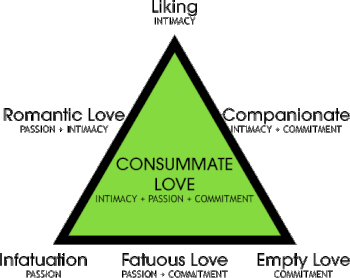Love really isn't as strong as I once thought.
Love requires a lot of things: trust, compassion, forgiveness, kindness and patience. I've seen marriages succeed, and marriages fail. Sometimes they just don't work out, and it makes sense, even though it sucks. It's usually meant to be that way, the divorcee and the divorced both end up finding someone in the end who strengthens them more than the divorcee or divorced, thought was possible.
We as human beings get comfortable and stay where we are, and in this situation it makes perfect sense. You don't want to leave this person whom you may have spent 2, 10, 20 or even 30 years with. There may be kids involved, materials both you and the other person have obtained, money, and I guess all assets. It's hard.
Communication and Honesty are the two biggest parts of "falling-in-love", I think. Just my own experiences of failed love and my succession with love. Failed love lacks the communication and honesty whereas; succession with love has so much communication and honesty.
The days of staying with the person no matter what has come and gone, and life changes so quickly. I of course have not been married, but think it's a huge possibility for me and Ab. The question that stands in my head is will it last? I'm not saying that because I doubt us, but because I've seen marriages I never thought would fail, fail. I used to say I refuse to let my marriage fail, but I think that's something that's uncontrollable. I am willing to do whatever it takes, but is the other person willing as well? If you bury the hatchet for years and years eventually there is no hope. So, all I can do is be overly honest and communicate everything in order to insure I've done all I can do.
Love is amazing. Love is beautiful. Love is life.
Psychologist Robert Sternberg made up the Triangular Theory of Love.
- Nonlove 'refers simply to the absence of all three components of love. Nonlove characterizes the large majority of our personal relationships, which are simply casual interactions'.[3]
- Liking/friendship is 'used here in a nontrivial sense. Rather, it refers to the set of feelings one experiences in relationships that can truly be characterized as friendship. One feels closeness, bondedness, and warmth toward the other, without feelings of intense passion or long-term commitment'.[4]
- Infatuated love: 'infatuation results from the experiencing of passionate arousal in the absence of intimacy and decision/commitment...like Tennov's limerance'.[5] Romantic relationships often start out as infatuated love and become romantic love as intimacy develops over time. Without developing intimacy or commitment, infatuated love may disappear suddenly.
- Empty love is characterized by commitment without intimacy or passion. A stronger love may deteriorate into empty love. In an arranged marriage, the spouses' relationship may begin as empty love and develop into another form, indicating 'how empty love need not be the terminal state of a long-term relationship...[but] the beginning rather than the end'.[6]
- Romantic love 'derives from a combination of the intimate and passionate components of love...romantic lovers are not only drawn physically to each other but are also bonded emotionally'[7] - bonded both intimately and passionately, but without sustaining commitment.
- Companionate love is an intimate, non-passionate type of love that is stronger than friendship because of the element of long-term commitment. 'This type of love is observed in long-term marriages where passion is no longer present'[8] but where a deep affection and commitment remain. The love ideally shared between family members is a form of companionate love, as is the love between close friends who have a platonic but strong friendship.
- Fatuous love can be exemplified by a whirlwind courtship and marriage - 'fatuous in the sense that a commitment is made on the basis of passion without the stabilizing influence of intimate involvement'.[9]
- Consummate love is the complete form of love, representing an ideal relationship toward which people strive. Of the seven varieties of love, consummate love is theorized to be that love associated with the “perfect couple.” According to Sternberg, these couples will continue to have great sex fifteen years or more into the relationship, they cannot imagine themselves happier over the long-term with anyone else, they overcome their few difficulties gracefully, and each delight in the relationship with one other.[10] However, Sternberg cautions that maintaining a consummate love may be even harder than achieving it. He stresses the importance of translating the components of love into action. "Without expression," he warns, "even the greatest of loves can die".[11] Thus, consummate love may not be permanent. If passion is lost over time, it may change into companionate love.
The above picture and "explanation" is from wikipedia. :)

No comments:
Post a Comment